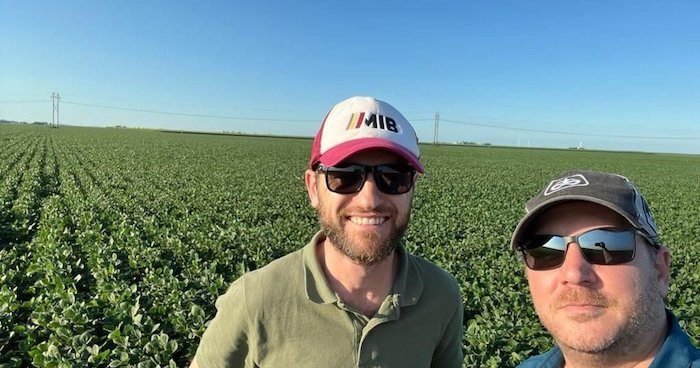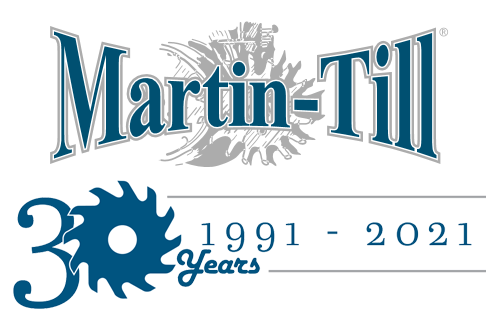Gonzalo Albizu was born in the countryside.
The town where he grew up, General Pico, is in the La Pampa Province, one of the provinces containing the pampas, or grasslands, of central Argentina. The region is part of Argentina’s “sandy west,” or more arid western half.
However, when he was less than three years old and his father died, life took him to the city and country experiences were left for the weekend or free time. That inspired him to take up a career in agronomy.
But the seed stood firm in his soul, was sown well and took root. Almost 40 years later, after being a consultant for the Regional Consortium for Agricultural Experimentation (CREA in Spanish) for a decade, he decided it was time to try new directions. Together with his wife and two young children, he moved to Illinois to bring his knowledge of no-till and cover crops to North American production.
Why Agricultural Science?
His rural inheritance and the need to take responsibility for the family farm pushed agronomy to the fore.
“I wanted to show that I had the ability to do it and I always believed that the path was agricultural science and not veterinary or agricultural economics,” he says.
Albizu “entered with many anxieties and apprehensions because of the idea that to be an agronomist he had to ride a tractor, harvest, perform manual labor, etc. But no, agricultural science is much more than that, there are many things that I discovered during” his studies.
He started finished his bachelor's degree in 2007.
After that, it took him a year to complete his master’s thesis in direct sowing (no-tilling). The subject continues to be his driving force and passion today.
“It was important to do the thesis before starting work, this is a moment when you have to hold the horse because you want to go to work immediately, but I kept calm, and then I went to work,” Albizu says.
Early Career and CREA
Albizu wanted to become a CREA consultant since his junior year of college, after hearing about CREA groups form a colleague. When a job in the Atreucó Department, a county in the east of La Pampa, opened up, he took it and held it for 6 years.
Albizu learned not only about new technical livestock issues but also “different people, different company profiles, some more organized with information, others more creative.”
Trying to achieve the same planning objectives and long-term vision "was great training." That vision clicked for Albizu when he and other members of the CREA Atreuco group toured farms in the Entre Rios Province further east.
“I began to look at it as a whole, an integral unit, because sometimes as agronomists we just look at the field. We want more production, but the reality tells you what’s also important: management, planning, decision-making in different scenarios. It’s challenging,” Albizu says. “It was crazy, but I learned a lot.”
After six years in Atreucó, he decided to seek new horizons.
“I wanted to rediscover myself with agriculture and that’s why I applied to the Queme-Catrillo, also in the sandy west, but in another context,” he says. “There, in addition to meeting another dozen agricultural companies , with different profiles, what I started seeing a lot is the use of service crops because La Pampa is in the areas with excess water and with other wind erosion.”
Many Argentine farms have moved from pastures, which need about about 40 inches of water per year, to crops that require 15-23 inches.
“In an area that gets 31 inches of rain per year, you have plenty of water when you grow grain, so the challenge is to manage shortfalls in some systems, but to exceed them in others. Service (cover) crops allow us to have good water management,” Albizu says.
Norward Bound
At the age of 38 years old, Albizu and his wife, agronomist Wanda Silvia, want to try an experience outside Argentina.
“Slowly I started thinking about what I would like for my life,” he says. “On the one hand I found that in the family business we were growing on what we had proposed, and I finished 10 years as a CREA consultant. I wanted to set myself new challenges.
“With our family we’ve always wanted the challenge of experiencing the outdoors, so when the possibility of launching a project in the U.S. with an American company with partners from Argentina arose, I went to see what they were doing there and I liked it. I offered to join the project as a technical manager. We talked about it at home started talking, and we felt like this was the moment,” he says.
Albizo is planning to move in March 2023 with Silvia and their two young children, Olivia and Justo, to the middle of the Corn Belt.
“In Illinois, farming is changing the American productive paradigm by exploring all possibilities of direct sowing, doing more agronomy in lots, testing with service crops,” Albizu says. “There’s a lot of production out there, but with a lot of things improving, most of all, what I saw, in soybeans, with a lot of focus on stability and carbon separation.
“The species of service crop, of course, will not be the same as that of Argentina, but it will still favor water economy, carbon sequestration and weed management. I believe that the dynamism we have put into Argentina’s productive system has a lot to contribute to the American system, and in turn, it allows me to seek knowledge and technologies applicable to the most suitable and productive soils in the world,” Albizu adds.
The idea is not to just apply the tools that are giving great results in Argentina, but to adapt them with an understanding of the problems in Illinois and learn from the practices, Albizo says.
“The project really inspired us,” Albizo says. “Face professional and personal challenges, learn the language, connect with other mindsets. I always talk about it with my wife. Having a life experience abroad opens your mind, and we would like our kids to be citizens of the world without ignoring their history.”
The No-Till Passport series is brought to you by Martin Industries.
Since 1991, Martin Industries has designed, manufactured and sold leading agriculture equipment across the U.S. and Canada. Known for Martin-Till planter attachments, the company has expanded to include a five-step planting system, closing wheel systems, twisted drag chains, fertilizer openers and more in their lineup. Their durable and reliable planter attachments are making it possible for more and more farmers to plant into higher levels of residue.








Post a comment
Report Abusive Comment